|
Former U.S. Representatives, Bob Goodlatte (and our senior policy advisor) and Barbara Comstock, provide insight in The Hill about the latest House hearing highlighting the latest threat to journalism and why the Senate should finally pass the PRESS Act.
Can a government regulator threaten adverse consequences for banks or financial services firms that do business with a controversial advocacy group like the National Rifle Association? Can FBI agents privately jawbone social media platforms to encourage the removal of a post the government regards as “disinformation”?
As the U.S. Supreme Court considers these questions in NRA v. Vullo and Murthy v. Missouri, a FedSoc Film explores the boundary between a government that informs and one that uses public resources for propaganda or to coerce private speech. (“Nice social media company you have there. Shame if anything happened to it.”) Posted next to this film, Jawboned, on the Federalist Society website is Protect The 1st’s own Erik Jaffe, who in a podcast explores the extent to which the government, using public monies and resources, should be allowed to speak, if at all, on matters of opinion. Is the expenditure of tax dollars to push a favored government viewpoint a violation of the First Amendment rights of Americans who disagree with that view? Jaffe thinks so and argues why this is the logical conclusion of decades of First Amendment jurisprudence. Furthermore, when the government tells a private entity subject to its power or control what the government thinks it ought to be saying (or not saying), Jaffe says, “there’s always an implied ‘or else.’” And even the government’s own public speech often has coercive consequences. As if to underscore this point, Jawboned recounts the story of how the federal Office of Price Administration during World War Two lacked the authority to order companies to reduce prices but did threaten to publicly label them and their executives as “unpatriotic.” That was a very real threat in wartime. Imagine the “or else” sway government has today over highly regulated firms like X, Meta, or Google. In short, Jaffe argues that a line is crossed when “the power and authority of the government” is invoked to use “the power of office to coerce people.” But it also crosses the line when the government uses its resources (funded by compelled taxes and other fees) to amplify its own viewpoint on questions being debated by the public. Such compelled support for viewpoint selective speech violates the freedom of speech of the public in the same way compelled support for private expressive groups and viewpoints does. Click here to listen to more of Erik Jaffe’s thoughts on the limits of government speech and to watch Jawboned. Forty-nine states protect journalist-source confidentiality. But the federal government does not. Gene Schaerr, our general counsel, co-authored a piece in The Dallas Morning News with Seth Stern, the director of advocacy for Freedom of the Press Foundation and a First Amendment lawyer, on The PRESS Act.
The PRESS Act is the strongest federal “shield” bill for journalists ever introduced. Not only would it stop the government from compelling journalists themselves to burn sources, but it would also bar officials from surveilling phone and email providers to find out who is talking to journalists. There is something poignant and noble about the ACLU’s defense of the right to engage in antisemitic speech. From its founding through the civil rights era, ACLU has been led by many lawyers, advocates, and donors who were and are Jewish. They and their families would be the first ones to perish under the regimes of the people whose constitutional right to speak are defended by the ACLU.
The ACLU in 1978 famously defended the right of neo-Nazis to parade though Skokie, Illinois, where many Holocaust survivors were living. Now former ACLU president Nadine Strossen and social psychologist Pamela Paresky – both proudly Jewish – are taking a stand against efforts to use the law to punish offensive remarks about the recent mass slaughter in Southern Israel. In particular, they criticize a proposal from Sen. Tom Cotton (R-AR) to empower the Department of Homeland Security to pull student visas and deport any foreign national on American soil who expresses support for Hamas. They write that such a policy would fly in the face of the First Amendment, which Supreme Court precedents extend to foreign nationals on American soil. On the other hand, Strossen and Paresky are correct to call out Joseph Massad of Columbia University for writing that Hamas’ slaughter of innocents was “awesome” and Russell Rickford of Cornell for saying “I was exhilarated.” Strossen and Paresky correctly note in their Free Press piece, “Imagine if, days after the murder of black worshippers in a Charleston church by a white supremacist, Proud Boys marched across campuses celebrating their deaths.” Or, we would add, if a professor called the murder of the worshippers “exhilarating.” The condemnation of such speech by university administrators, professors and students would be deafening. At Cornell, Jewish students have had to shelter-in-place and avoid kosher dining halls to avoid violence. There has been a large number of similar, chilling incidents on other campuses. And the response by university presidents? By and large, mealymouthed statements that amount to profiles in cowardice. It is hard to imagine students making the most of the promise of academic freedom when they must fear for their lives simply because of their religion. The academy has gone from creating “safe spaces” for students to avoid hearing dissenting views, to having to create safe spaces to protect them from actual violence. At the other extreme, Strossen and Paresky are right that outlawing offensive speech, even if it has implications that could be dangerous, does not make bad ideas go away. As we’ve said before, banning anti-social speech tends to pump it up with a neon allure. And the only thing worse than the flag-waving Nazi next door is the secret Nazi next door who pretends to be normal but would denounce you if the moment were ripe. We agree with Strossen and Paresky that people and institutions have – and should exercise – a First Amendment right to react negatively to offensive speech. They support, as we do, the right of university donors to withhold funding. But how far should critics go? Strossen and Paresky write: “We should also consider the cultural effects of such retribution. People say ill-conceived, stupid, even evil things all the time. Should they be cast out into the wilderness? Their livelihoods jeopardized?” Perhaps the answer to these questions should be “yes.” We agree that the extremes of cancel culture have degraded the free exercise of speech in our First Amendment society. But make no mistake, “cancellation” or calls for disassociation by private parties and companies itself is a protected form of speech and association. Nobody needs to associate, in business or in life, with those who wish them or people they care about ill. Where Strossen and Paresky are squeamish about firings and shunning, we are more worried about the cultural effects of maintaining tenure for professors and scholarships for students who advocate the mass murder of innocents. If someone is highly critical of Israel, the bombing of Gaza, or is pro-Palestine, they are well within the parameters of a fair debate. But if someone can respond to the murder of babies and find it “exhilarating,” then we question if it’s just the speech that’s evil. It is important to remember that the First Amendment means no government suppression of speech. Private actors can respond to bad speech with speech of their own, including the right of association – or, by implication, disassociation, commonly called firing. Discrimination against people for what they say and do can be a good thing. Such distinctions mark the boundary between a culture of lively debate and a nihilist culture moderated by violence. REAL CLEAR EDUCATION: Why the School Choice Revolution Should Give Americans Reason for Optimism5/3/2023
Rick Boucher and Bob Goodlatte, former Members of Congress and now Senior Policy Advisors to Protect The 1st, detail the school choice revolution sweeping the country. States are adopting universal school choice – protecting the 1st Amendment right of parents to choose the most appropriate school for their children.
On December 21st, the faculty senate of the Massachusetts Institute of Technology voted to approve a “Free Expression Statement,” defending speech and expression at the university. The statement asserts that “learning from a diversity of viewpoints, and from the deliberation, debate, and dissent that accompany them, are essential ingredients of academic excellence.”
The Free Expression Statement was approved by a vote of 98 to 52, a sizable margin showing that respect for free expression is alive and well at MIT. Not only does the statement enshrine respect for free speech, viewpoint diversity, and debate as cornerstones of academic integrity, but so too does it defend the right to speech that may hurt or offend. “We cannot prohibit speech that some experience as offensive or injurious,” the statement reads. The Free Expression Statement is the culmination of a year’s work by MIT’s Ad Hoc Working Group on Free Expression, and was incited by last year’s invitation for, and subsequent cancellation of, a speech by geophysicist Dorian Abbot. Abbot was invited to present 2021’s annual John Carlson Lecture, which “communicates exciting new results in climate science to the general public.” Protestors led a successful campaign to disinvite Abbot because of his critical views on the university’s Diversity, Equity, and Inclusion initiatives. That the Free Expression Statement was adopted by the faculty senate goes a long way towards rectifying the mistakes of last year, but it still has further to go. “[MIT] President Kornbluth can set a strong example by endorsing the free expression statement herself, as well as by considering and implementing the thoughtful recommendations of the free expression working group,” said Peter Bonilla, Executive Director for the MIT Free Speech Alliance. PT1 strongly supports the passage of the Free Expression Statement by the faculty senate at MIT. We look forward to further efforts to preserve and protect free speech at MIT and at universities across the country. How wrong does a journalist have to be in her reporting to be held liable for a false statement about a public figure?
The baseline for libel of a public figure traces back to the 1964 New York Times v. Sullivan opinion, in which the U.S. Supreme Court held that a city public safety commissioner could not win a liable suit against a newspaper over minor misstatements in an ad. That case set a lasting precedent that in order to prevail a public figure must prove actual “malice” – a statement made knowing that it is false or with reckless disregard to its truth or falsity – to win a libel case. The limits of protected speech and the definition of a public figure were expanded when Hustler publisher Larry Flynt was sued by The Rev. Jerry Falwell after producing a fictional and pornographic “interview” with him in the 1980s. The Court ruled against Falwell, holding that the prominent minister was a public figure for First Amendment purposes. Recent years, however, have seen fine-tuning in the direction of the plaintiffs. In 2017, Rolling Stone magazine agreed to pay $1.65 million to the University of Virginia chapter of a fraternity after falsely portraying its members as brutal gang rapists. The magazine capitulated because the reporter in this case was demonstrated to have practiced a degree of carelessness that could easily be judged as “malice.” An ongoing, high-profile case will once again demonstrate the courts’ application of the “malice” standard and the rights of public figures in a libel suit. A federal court will allow former Rep. Devin Nunes to proceed on one claim made by MSNBC commentator Rachel Maddow on her eponymous TV show in 2021. Maddow’s statements concerned a mysterious package delivered to the House Permanent Select Committee on Intelligence more than a year before. Addressed to Nunes, the package had come from a Ukrainian politician believed to be close to the Putin government. Nunes’ staff delivered the package unopened to the FBI, while Rep. Nunes sent a letter to the attorney general notifying him of the receipt of the package. In July 2020, Rep. Sean Maloney publicly asked Rep. Nunes if he had ever received materials from this individual, Andriy Derkach, suspected by U.S. intelligence of operating on behalf of the Kremlin. And if so, would Nunes share what he had received with the committee? Nunes declined to answer. On her show, Maddow said that the mailer “is singled out by name by the Director of National Intelligence as someone under Vladimir Putin’s direct purview who helped run this organization targeting our election last year. Congressman Nunes accepted a package from him. What was in it?” Maddow’s next made more problematic statements: “Congressman Nunes has refused to answer questions about what he received from Andriy Derkach. He has refused to show the contents of the package to other members of the intelligence community. He has refused to hand it over to the FBI which is what you should do if you get something from somebody who is sanctioned by the U.S. as a Russian agent.” The U.S. District Court for the Southern District of New York refused to allow Rep. Nunes to sue over the statements that he had refused to answer questions, or that he had refused show the contents of the package to other members of the intelligence community. These statements are true (or true enough), the federal court reasoned, because to the average viewer the “intelligence community” would certainly cover the House intelligence oversight committee. Where Maddow and her employer are at risk is the statement that Nunes refused to hand the package over to the FBI. The court found this statement “does not fall within the fair report privilege” because “it is not substantially true.” Thus, the court dismissed all of Nunes’ claims except this one. Will Maddow’s false statement amount to “malice” in the eyes of the court? Would a loss by her lead to more careful reporting, or would it have a chilling effect on journalism? Once Maddow’s statement is litigated, the outcome will sharpen our understanding of how courts today judge a factual error, how they continue to apply libel law to public figures, and the implications of these judgments for the First Amendment. This is a case to watch. The threats to donor privacy keep coming. In 2021, the U.S. Supreme Court ruled 6-3 in Americans for Prosperity v. Bonta against a California law that would have forced non-profit organizations to report the identities of their donors to the state. That bad idea has now wafted across the Colorado River to find new life.
Arizona’s Proposition 211, “The Voters’ Right to Know Act,” would require organizations that promote, support, attack, or oppose a candidate within six months of an election – or mounts any public communication that refers to a candidate within 90 days of a primary – to disclose the identities of donors who give more than $5,000. Former Arizona Attorney General Terry Goddard has said that there is no evidence harassment of donors would be a problem. Does he not watch the news? To dismiss the danger of donors being “doxxed” is to ignore a pile of evidence as high as Camelback Mountain. A few years ago, Mozilla CEO Brendan Eich was forced out of his job when the California Attorney General mandated the disclosure of donors in support of Proposition 8, which supported traditional marriage. Small donors received death threats and envelopes containing white powder. Their names and ZIP codes were helpfully overlaid on a Google Map. And don’t overlook the tense state of our political culture, one in which Rep. Steve Scalise received multiple gunshots and the husband of House Speaker Nancy Pelosi had his skull fractured by a hammer. In both instances, disturbed men acted on political impulses. A chilling effect on the free exercise of one’s First Amendment rights need not come from violence. Exposure can heighten donors’ fear that they, or their businesses, will be singled out by vengeful regulators with political motivations or by activist boycotts. Whispered threats of cancellation can be just as effective as the cancellations themselves. Tellingly, the group behind this measure – the Voters’ Right to Know Committee – discloses the names of small donors, but does not disclose in its most recent official campaign report the corporations and out-of-state PACs behind this ballot initiative. Perhaps this committee’s “dark money” donors appreciate the words of Justice John Marshall Harlan II, who wrote in the NAACP v. Alabama decision that immunity from state scrutiny supports the rights of Americans “to pursue their lawful private interests privately and to associate freely with others.” This month’s brutal assault on Indian-born British-American novelist Salman Rushdie was not just a violent attack on a prominent author. It was an attack on free expression itself.
In response to The Satanic Verses, a book Rushdie wrote in 1988, the supreme leader of Iran, Ruhollah Khomeini, issued a fatwa against the author. Since then, there have been numerous attempts on Rushdie’s life. This latest attack is just the most successful of them. There has been no shortage of commentators who have stated in the same breath that, while the fatwa and assassination attempts were wrong, Rushdie should not have published a book that would offend millions of Muslims around the world. Any attempt to balance the interests of free expression with death threats will only cede territory to violence. This month’s attack only further proves that speech rights around the world are increasingly threatened by political violence. If someone like Rushdie, who has had to flee his home and receive security, can still be targeted, so can anyone who says the wrong thing. Citizens of free societies should be able to disagree with one another, even stridently, without demonizing their opponents. In 2020, Rushdie, along with other prominent figures, signed an open letter published in Harper’s Magazine slamming the spread of censorship and intolerance. The letter read: “The way to defeat bad ideas is by exposure, argument, and persuasion, not by trying to silence or wish them away.” Now, more than ever, the right to free expression around the world requires even greater defense. Our senior policy advisors and former congressmen, Bob Goodlatte and Rick Boucher, wrote an important piece on the need for federal law to protect journalists. Should the government be free to dig into the records, notes, phone logs and emails of journalists or subpoena them into federal court to catch a leaker? |
Archives
June 2024
Categories
All
|
ABOUT |
ISSUES |
TAKE ACTION |


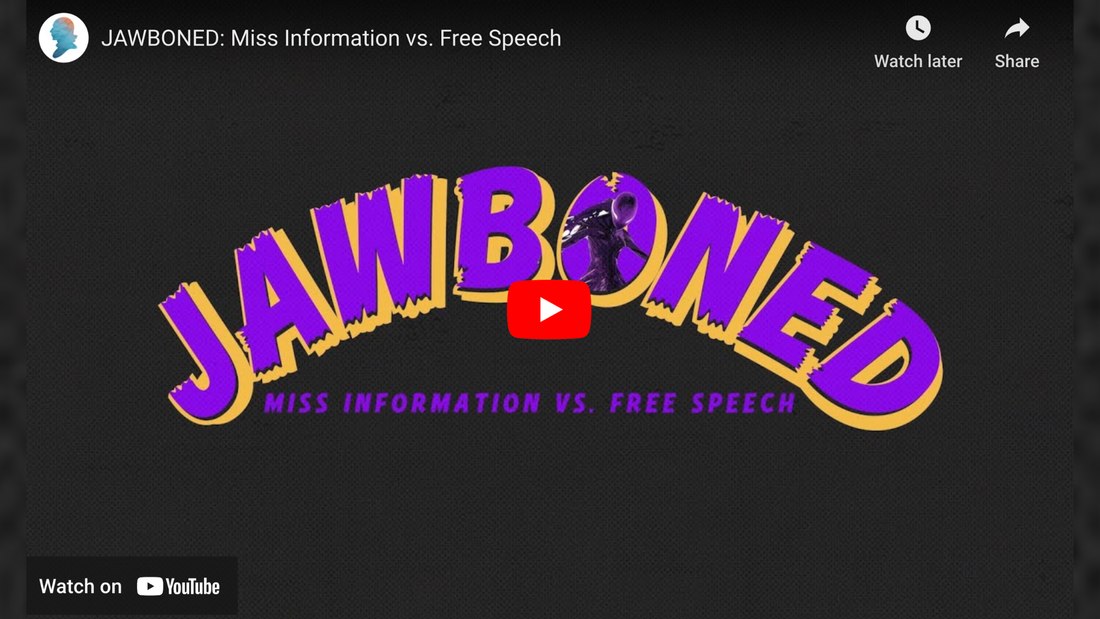
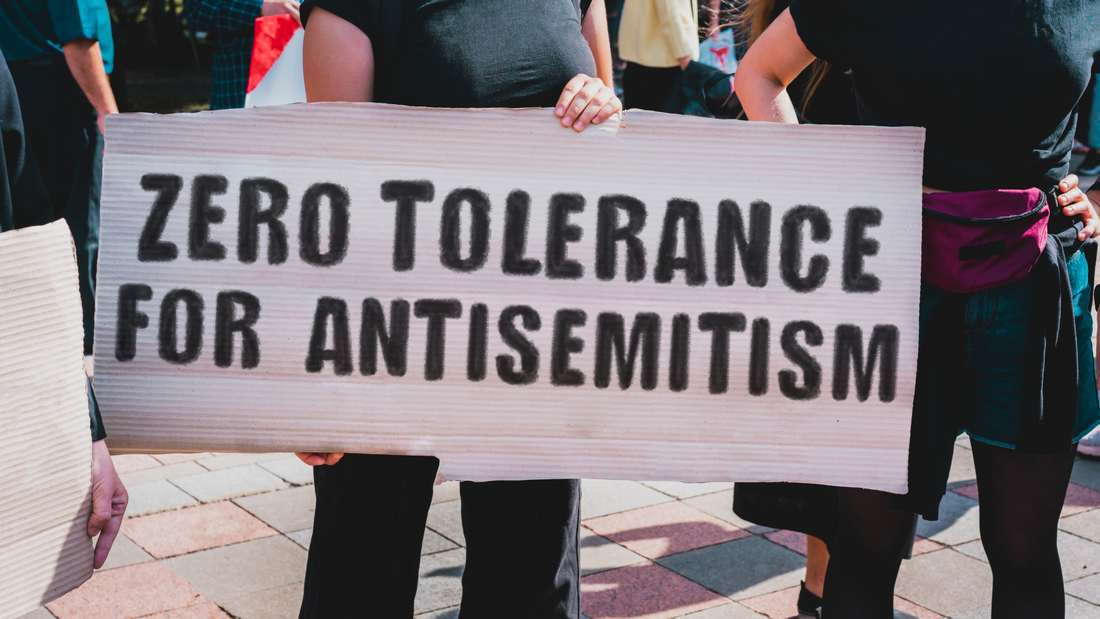

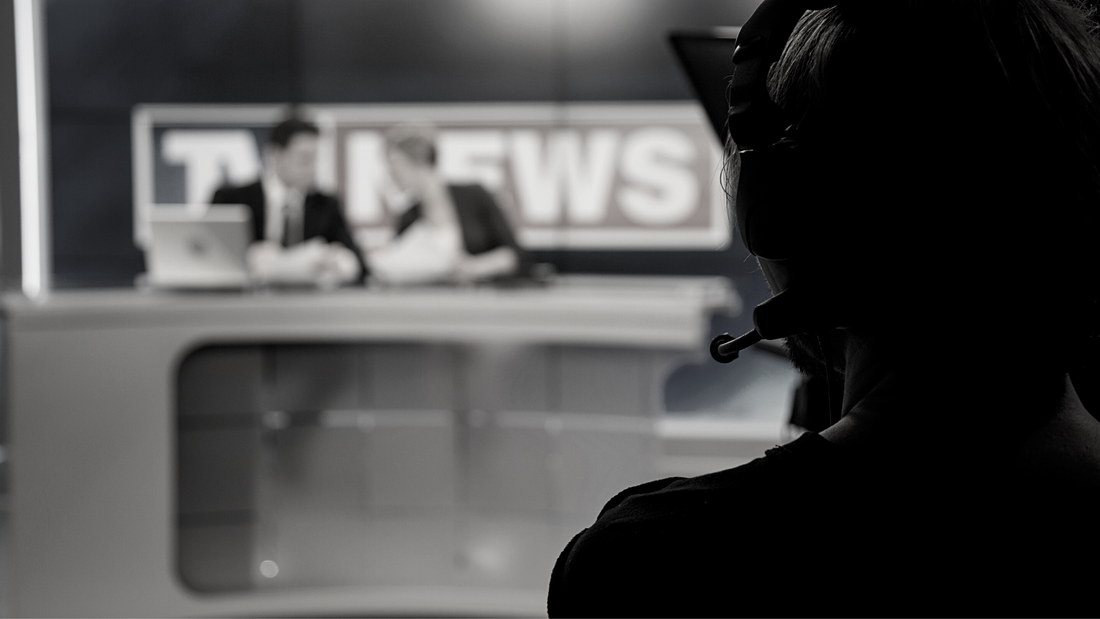
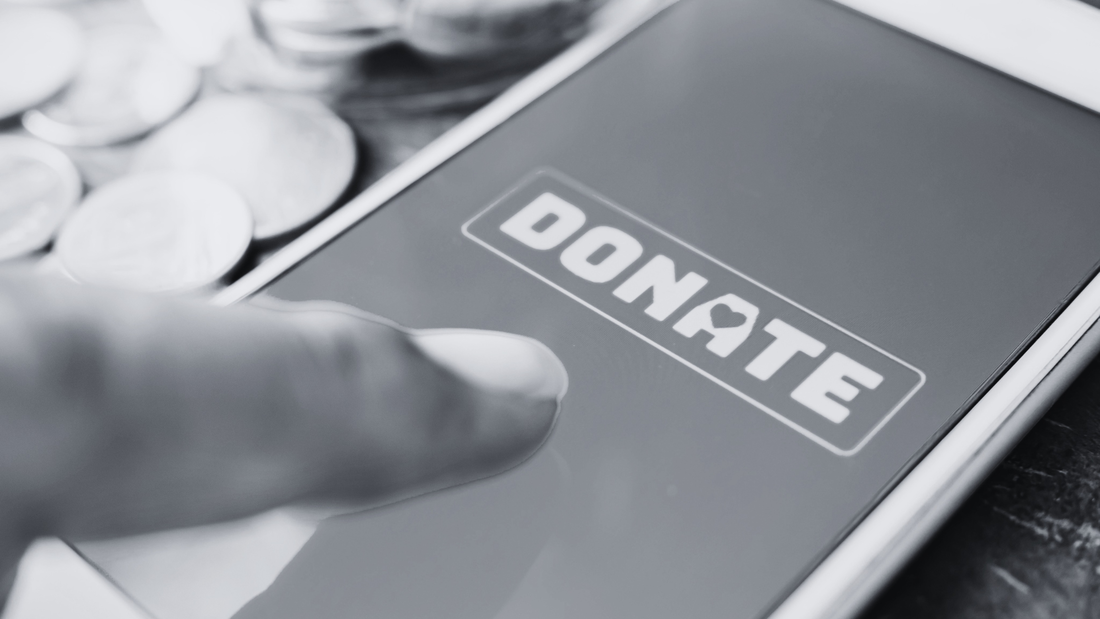
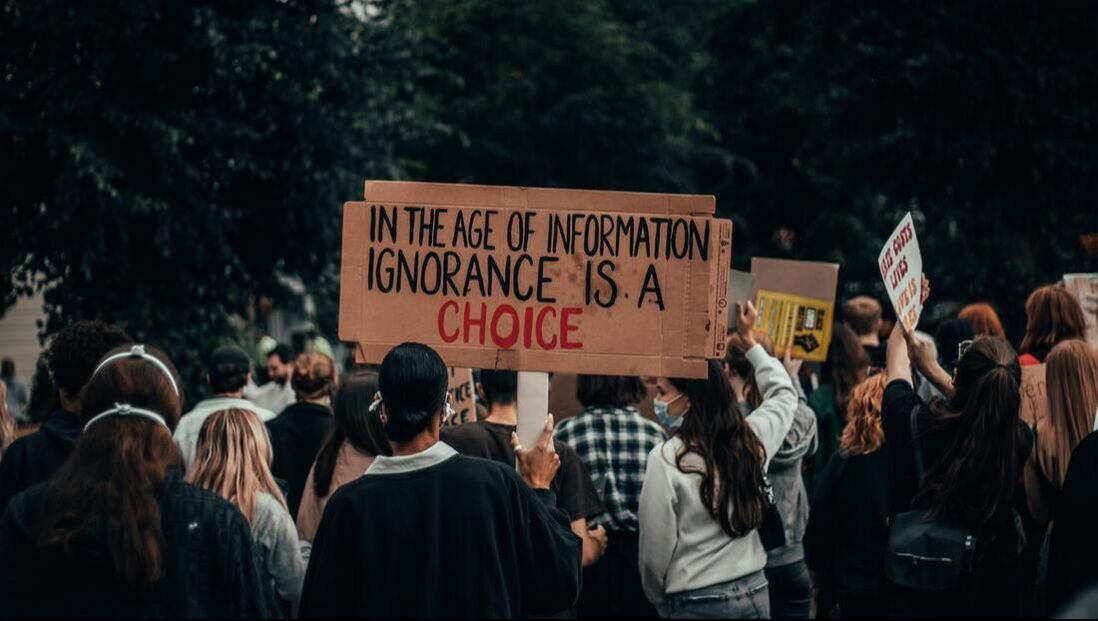
 RSS Feed
RSS Feed